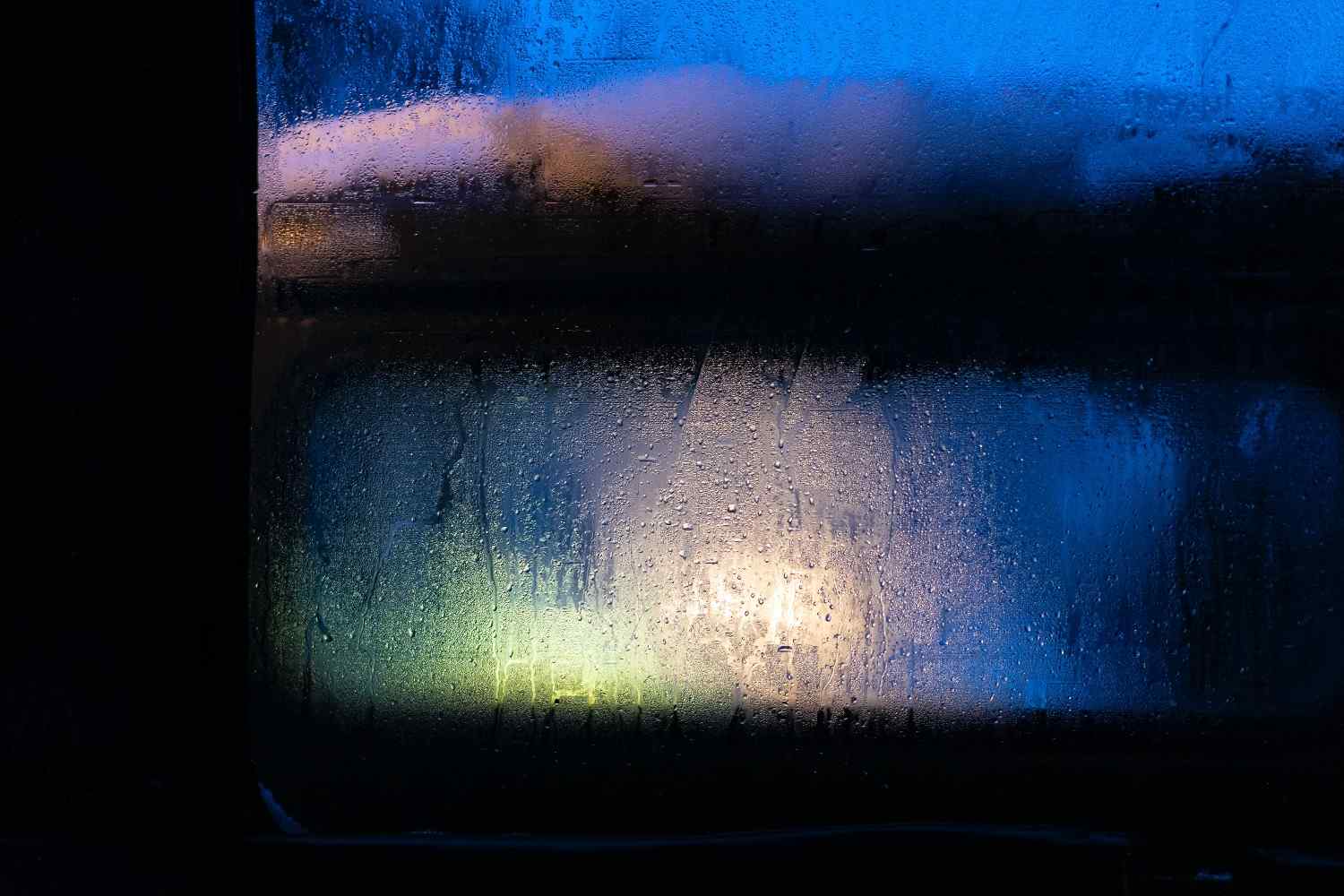Last updated on January 15th, 2024 at 10:05 am
Discovering your windows are leaking can be both puzzling and frustrating. Before you blame the windows, it’s worth considering your boiler. Yes, that’s right, your boiler could be the unexpected culprit behind those window leaks.
In this article, we’ll look into the surprising connection between your boiler and window leaks. We’ll explore common boiler issues that may lead to excess moisture and how they can inadvertently cause your windows to start leaking, signaling you might need to install a new boiler. Warmable will highlight reasons behind this common household problem and provide you with the knowledge to tackle it.
What Are The Common Signs of Window Leaks?
Identifying the early signs of window leaks can save us from costly damages down the line. Look out for these tell-tale indicators that suggest we might have a leak around our windows.
- Damp Patches around the window frame can be one of the first signs of a window leak.
- Peeling Paint or wallpaper near the window area often implies moisture has seeped in.
- Mould or Mildew growth is a clear sign that there is excess moisture within the vicinity of the window.
- Condensation between window panes indicates a seal failure and potential leak paths.
Additionally, if we notice a musty smell in the room or see visible water droplets on the inside surface of the window during or after a boiler operation, it’s time to investigate further. These signs point to an increased humidity level that could be stemming from a boiler-related issue.
Staining on walls or ceilings adjacent to the windows is another clue. Unlike direct leaks where water drips are obvious, such staining could be the result of persistent, low-level moisture escaping from a malfunctioning boiler system.
We must regularly check for these signs, especially after periods of heavy rainfall or extreme winter cold. By catching and addressing window leaks early, we protect our home from structural damage and potential health hazards associated with lingering dampness.
Understanding Boiler Issues
Boiler issues can be a less obvious but significant factor contributing to window leaks in our homes. A failing boiler often lead to excessive moisture accumulation, which in turn condenses on window surfaces. When the condensation exceeds the window’s limit to evaporate water, the excess moisture begins seeping into surrounding areas, eventually causing leaks.
At first glance, it might not be immediately apparent that a boiler is the root of the problem. Yet, upon closer inspection, we might find that improper boiler operation or malfunctioning heater exchanges can produce unusually high levels of humidity. Here are key indicators that boiler issues may be affecting our windows:
- Unexpected moisture: Noticing water droplets when the boiler kicks in could point to a direct correlation between the two.
- High humidity levels: Utilizing a hygrometer, we can measure the ambient humidity. Readings persistently above the 60% mark could signal a malfunctioning boiler.
- Rust or corrosion: If we observe rusting on the boiler or pipes, it is often a sign that excessive moisture is being released into the air.
Regular maintenance checks of our heating systems are essential. Annual servicing of your boiler ensures that it’s working efficiently and not contributing to undue moisture in the air, which could, in turn, affect the integrity of our windows.
What Is The Connection between Window Leaks and Boilers?
In navigating the complex landscape of home maintenance, we’ve stumbled upon an unexpected relationship: window leaks and boiler issues. It’s a connection that often goes unnoticed, yet it’s crucial for ensuring the long-term health of our living spaces.
At first glance, it might not seem obvious that a malfunctioning boiler can be at the heart of window leakage problems. However, when we delve deeper, it’s clear that a boiler in disrepair can significantly increase indoor humidity levels. This excess moisture in the air gravitates towards colder surfaces, which during the cooler months, are often our windows.
It’s critical to understand that high humidity inside a home can lead to condensation when it comes in contact with the cold glass of a window. Over time, this moisture can break down the integrity of window seals and lead to leaks. In extreme cases, persistent condensation can even promote rot in wooden window frames, exacerbating the problem further.
Boilers, primarily when incorrectly sized for a home, can create cycles of high humidity and dampness. These cycles put our windows at risk, showcasing an indirect yet potent way boilers influence the health of our windows. Regular inspections and maintenance of our heating systems, therefore, do more than just keep us warm; they safeguard our windows against the sneaky intrusion of leaks.
Is Excess Moisture A Common Boiler Issue?
Excess moisture in the home is often a sign of underlying boiler problems. When a boiler is not operating efficiently, it may produce more humidity than usual. This extra moisture can accumulate and manifest as condensation on windows and other surfaces. Poorly maintained boilers are particularly prone to causing this problem, as they struggle to regulate the heat and humidity levels within a home.
The role of the boiler in maintaining an optimal balance of humidity cannot be understated. With most households relying on their boilers for both heating and hot water, regular maintenance becomes critical. Boilers should be inspected at least once a year by a certified professional. During these inspections, technicians can spot early signs of wear and tear, which might contribute to excess humidity if left unchecked.
Ensuring that your boiler functions correctly involves more than just inspections. It includes cleaning filters, checking for leaks, and verifying that the heating controls are working correctly. Should we fail to keep on top of these aspects, the likelihood of persistent humidity and resulting window leaks increases substantially.
Controlling indoor air quality is essential not only for the integrity of our windows but also for our overall health. While boilers may not be the most obvious culprit behind window leaks, their contribution to elevated indoor humidity levels is a factor that demands our attention.
How Can Boilers Cause Window Leaks?
When we’re faced with the perplexing issue of window leaks, it’s crucial to consider the unlikely culprits within our homes. Boilers often fly under the radar but have a significant impact on indoor humidity levels. Faulty or inefficient boilers can be problematic, leading to excess moisture in the air, which then manifests as condensation on the cooler surfaces of windows. This condensation can eventually lead to persistent window leaks.
It’s a well-known fact that boilers require a certain level of upkeep to function optimally. A boiler that needs a repair can produce more humidity, primarily when it’s overcompensating for other issues. For instance:
- Leaking pipes or valves within the boiler system can release additional moisture.
- An overworked circulating pump might contribute to increased humidity as it struggles to heat your home.
- Malfunctioning burners could result in incomplete combustion, also heightening indoor moisture levels.
To mitigate these issues and protect our windows from leaks, ensure the boiler system is:
- Regularly checked by a certified professional
- Operating at correct pressure levels
- Free of any visible leaks or faults
Remember, consistent boiler maintenance not only preserves the integrity of our windows but also enhances the overall indoor air quality and maintains the efficiency of our heating system. Keeping boilers in prime condition is, thus, a necessary step in safeguarding our homes from various moisture-related problems.
Conclusion
A well-maintained boiler is key to preventing unwanted window leaks. By ensuring our heating systems are in top condition we’re not just safeguarding our windows but also enhancing our home’s overall atmosphere and efficiency. We recommend making regular boiler check-ups a priority to keep your spaces dry comfortable and energy-efficient. Remember it’s about more than just the windows—it’s about the quality of your living environment.
Frequently Asked Questions On Leaking Windows
Can Boilers Really Cause Window Leaks?
Yes, boilers can contribute to window leaks by producing additional moisture in the air, which can then condense on windows and potentially cause leaking problems if not properly managed.
How Does Excess Moisture From a Boiler Result In Condensation?
Excess moisture from a boiler can raise the humidity level inside a home. When this moist air comes into contact with cooler surfaces, such as windows, it cools down rapidly and releases some of its moisture as condensation.
What Kind of Boiler Problems Lead To Increased Humidity?
Leaking pipes, overworking circulating pumps, and malfunctioning burners are common boiler problems that can lead to a rise in indoor humidity levels, consequently leading to condensation issues.
Why Is Regular Maintenance On Boilers Important?
Regular boiler maintenance is vital as it ensures the heating system is operating efficiently. It helps prevent humidity problems that can damage windows, and also helps improve the overall indoor air quality.
What Are The Benefits Of Consistent Boiler Maintenance Besides Preventing Window Leaks?
Consistent boiler maintenance offers several benefits, such as improved heating system efficiency, better indoor air quality, and the prevention of costly repairs due to undetected issues escalating over time.


